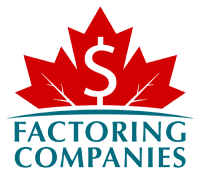Invoice Factoring for Manufacturing Companies
Even the most successful manufacturing companies can experience cash flow issues. The high operating costs, purchasing of raw materials, projects that take months to complete, periodic lower returns, and the numerous expenses that are required to keep manufacturing companies operational can be difficult to navigate.
Invoice financing (accounts receivable factoring) can keep your business afloat during high and low production periods. Factoring services for manufacturing companies allow you to eliminate debt, maintain payroll and continue production without waiting months for your customers to pay.
Manufacturing Factoring vs. Bank Loans
There are multiple ways small business owners and manufacturers can obtain financing, but that is not to say that all financing options are created equal. Bank loans and lines of credit are always the first thought for any business in need of extra capital. However, the eye-popping interest rates, lengthy application and approval processes, and rigid requirements can put these options out of reach for many small businesses. Even fully established companies with great credit histories can wait months for funding. Invoice factoring is a way to get instant operating capital without creating new debt on your balance sheet or negatively impacting your credit score.

Instead of borrowing money, you sell your open accounts receivable (unpaid invoices) to a factoring company in return for a percentage of their value upfront. With manufacturing factoring, you won’t have to wait 60 to 90 days for your clients to pay, either. Instead, you can get up to 95 percent of your total invoice value in advance within as little as 24 hours of being approved, and the factoring company will typically handle the collections process for you.
Typical Manufacturing Factoring Rates and Fees: What to Expect
Understanding typical manufacturing factoring rates and fees is crucial for manufacturers looking to maintain steady cash flow. Unlike loans, factoring doesn’t create debt—it involves selling unpaid invoices to a third-party factoring company for immediate funds. However, the cost of factoring varies based on things like invoice amount, customer creditworthiness, and industry risk.
There are two primary types of factoring: recourse factoring and non-recourse factoring. With recourse factoring, the manufacturer is responsible if a customer fails to pay, often resulting in lower fees. In contrast, non-recourse factoring shifts that risk to the factoring company, leading to slightly higher rates. On average, typical factoring rates for manufacturers range from 1% to 5% per 30 days, with additional fees depending on contract terms.
Some businesses opt for spot factoring, which allows them to factor select invoices rather than committing to a long-term agreement. Whether using receivable factoring for manufacturing regularly or occasionally, manufacturers should carefully compare offers and ask any factoring company you’re considering about contract terms, hidden fees, and whether they purchase invoices at a discounted rate. Understanding these costs ensures manufacturers can maximize factoring benefits while maintaining financial stability.
Top Financial Challenges in the Manufacturing Industry
The manufacturing industry can often be affected by changes in such factors as commodity prices, labor costs, technology, tariffs, and taxes. These factors can impact the profitability of manufacturers and may also affect the ability of companies within the sector to compete effectively. Other financial challenges in the manufacturing industry include:
How to Run a Successful Manufacturing Company
Running a successful manufacturing business requires striking the right balance between the needs of your wholesale or retail buyers and those of the end consumer while still creating a profitable operation. Your long-term success will depend on your ability to establish loyal buyer relationships and the ability to operate with good profit margins. This can be done by making and delivering top-quality products in terms of everything from design to quality control. You need to identify gaps in your production efficiency and implement solutions to minimize waste and improve your work processes.
Improving the efficiency of your production process includes multiple factors, such as ensuring you hire capable staff, invest in training, properly maintain your equipment, and prioritize communication and effective coordination between team members. Network to build a strong group of contacts that can help you talk to the right people and get your foot into the right doors. Ultimately, all these factors will contribute to ensuring that you are running your business as efficiently as possible, saving money, and creating opportunities for growth.
Financing Options for Manufacturing Companies
Enhancing Cash Flow with Invoice Factoring: A Guide for Manufacturing Success
In the competitive landscape of the manufacturing sector, manufacturing invoice factoring emerges as a cornerstone for sustaining and propelling business growth. By choosing a leading invoice factoring company, businesses can convert active invoices to a factoring entity, thereby unlocking immediate capital. This factoring service is not merely a transaction but a strategic factoring relationship that bolsters business credit and facilitates continuous production cycles. Unlike traditional business loans, invoice factoring for manufacturers is a streamlined factoring process that provides funds within business days, making it a preferable choice for manufacturing companies often faced with the challenge of long payment terms.
Factoring work in the manufacturing sector offers a plethora of benefits. By submitting outstanding invoices to a factoring service, manufacturing factoring companies help transform invoices into cash, offering a lifeline during periods of tight cash flow. This factoring guide explains how using factoring not only aids in covering operating expenses but also supports business growth. Invoice factoring vs. traditional financing showcases factoring’s advantage of not accumulating debt, as the cost of factoring is typically covered by a small factoring fee once the invoice is paid.
Moreover, factoring provides a financial cushion, allowing manufacturing firms to maintain their edge by investing in technology and staff training, crucial for staying competitive. Factoring solutions, including invoice factoring services, are tailored to meet the specific needs of manufacturers, ensuring that companies offer competitive terms to their clients. Through a detailed factoring agreement, manufacturing companies can leverage factoring to help your business grow, turning accounts receivable factoring into a strategic tool for business owners.
Embracing invoice factoring is not just about managing finances; it’s about ensuring your manufacturing business thrives in a dynamic market. Factoring can help your manufacturing company navigate financial complexities with ease, turning challenges into opportunities for expansion and innovation. Learn how invoice factoring can be the key to unlocking your business’s potential and fostering a robust foundation for manufacturing success.
Invoice factoring is an easy and affordable way to access the working capital you need when you need it. Factoring Companies Canada allows you to find and compare factoring services to ensure you are partnering with a company that is best suited to help you. You need a factoring company that understands the complexity of your industry. Browse our Factoring Guide to find a manufacturing factoring company near you.
Want to get started with invoice factoring for your manufacturing company? Request a factoring rate quote today.
Get an instant factoring estimate
Factoring results estimation is based on the total dollar value of your invoices.
The actual rates may differ.
CLAIM YOUR FREE FACTORING QUOTE TODAY!
PREFER TO TALK?
You can reach us at
1-866-477-1778
What People Say About Our Factoring Partners
“Very helpful and welcoming from the beginning to present. Outstanding TEAM!!!!”
“The whole staff is very friendly knowledgeable, helpful, and go to extra mile to make sure you accomplish all your goals.”
“Good customer service, a good partner for your business to grow!”
“Everyone I talk with is very knowledgeable and patient in helping get the information needed to improve my Business! Thank you!”
“I’m very happy with the service I’ve received from beginning to end.”
“I am more knowledgeable about my business and have more help now than I could have ever imagined. Great experience !!”
Get an instant factoring estimate
Factoring results estimation is based on the total dollar value of your invoices.
The actual rates may differ.
CLAIM YOUR FREE FACTORING QUOTE TODAY!
PREFER TO TALK? You can reach us at 1-866-477-1778
As Seen In






Our Partners Belong To




